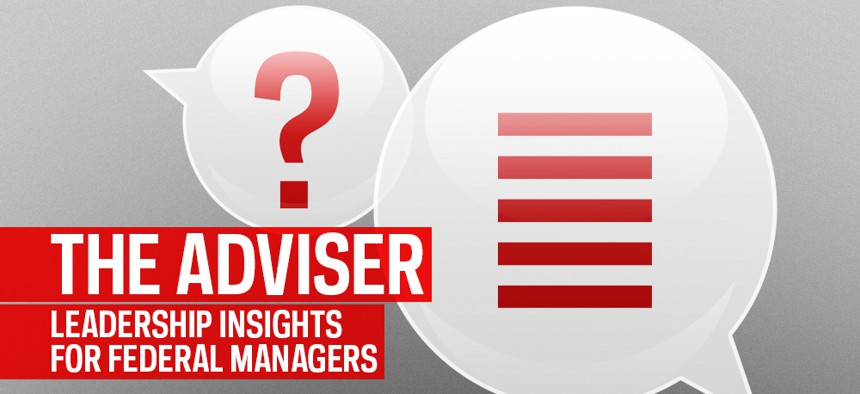
How to Think Strategically as a Leader
In jumping to a solution, you could be missing the real problem.
What is strategic thinking and how can I get better at it?—Anonymous
In our rapidly changing world, strategic thinking is a tent pole of leadership. Good strategic thinking can help resolve challenges. But bad strategic thinking almost always makes the situation worse. Outside of dictionary definitions, strategic thinking has resisted an agreed upon definition in the context of organizational leadership, and no universally accepted path for getting better at it has been identified. So, your two questions indeed are challenging.
The BusinessDictionary.com definition of strategic thinking is “the ability to come up with effective plans in line with an organization’s objectives within a particular economic situation.” Other definitions range from metaphors (“finding the dots and connecting the dots”) to mathematics (such as the theory of games) to the abstract (“mental process, at once abstract and rational, which must be capable of synthesizing both psychological and material data”).
But strategic thinking, especially with respect to organizational leadership, can be defined in a more actionable way. It involves four fundamental processes:
- Recognizing. When is a situation strategic? While many indicators exist, three are particularly important: 1) much is at stake, 2) the cost to reverse decisions is high, 3) outcomes are not certain. There is no doubt that the Ebola pandemic is strategic: many lives are at stake, the lack of early intervention cannot be reversed, and how many globally will be affected is uncertain. But when did the issue become a strategic issue? When only a few people in West Africa were sick? When the rates of infection to an epidemic? When the epidemic becomes a pandemic? Given prior knowledge of the disease and experience with the disease, the issue became a strategic one for the United States and the world long before the current Ebola outbreak was identified in March 2014.
- Formulating. Diagnosing the challenge, problem or opportunity is critical. Who are the stakeholders? What information and knowledge do they have? What is in their best interest? What is the real challenge? You want to formulate the challenge from all relevant perspectives, but also to take a step back and reformulate to come up with an overarching diagnosis. How and why are these formulations connected? What is the big picture? Is there an even bigger long-run picture? For instance, beyond the obvious and immediate root causes of the biological and medical aspects of Ebola, why might it be difficult for West African countries to contain the virus? Why might family and village members not only refuse to report sick individuals but also hide the deaths of family members from the authorities, both of which could accelerate the pandemic? What are the logistical and distribution challenges of medical aid and support reaching affected communities? How might citizens, communities, political and regulatory institutions, and economic interests around the globe respond in different ways to a perceived pandemic as it grows in geographic scope and magnitude? Responses to these and other questions can provide a more comprehensive formulation of the challenge.
- Solving. A comprehensively formulated challenge shines a bright light on where to look for solutions. Einstein once wrote: “The formulation of the problem is often more essential than its solution.” Nonetheless, comprehensive and feasible solutions are not always easily found. Approaches have to be analyzed, compared and contrasted. Treatment, quarantines, appropriate burials, education of citizens and health care workers, travel screenings and perhaps travel bans are surely all to be considered. But solution elements that address other aspects of the root causes about reporting the sick, hiding death, and other factors that contribute to accelerating the pandemic also need to be considered if the problem is to be tackled in a comprehensive way.
- Deciding. A strategic decision is not to be taken lightly. Can actions be taken to reduce uncertainty, lower the stakes, or reduce the costs of potential reversal? Is the timing right? Sometimes a decision can’t be delayed or reducing the risk comes at too high a cost. What is the downside risk? How can the downside be mitigated while still capturing the upside? In many instances, though, responding to pressure to decide quickly can lead to far worse outcomes than delaying the decision until after the options and risk management are worked through.Some decisions, like screening and isolating flight arrivals from West Africa, may be seen as actions too costly for societies to take until the epidemic reaches their shores. In fact, many decisions involve trade-offs between arresting the epidemic and causing panic.These trade-offs can change over time. Revisiting decisions in an ongoing way is an important aspect of strategic thinking (you can track information about the Ebola epidemic here).
While the Ebola epidemic is an obvious application of strategic thinking, the same four fundamental processes can be used for any strategic issue ranging from investing in a new information technology system to ending homelessness for veterans.
Strategic thinking is difficult, but two key ideas may help.
First, instead of trying to improve all aspects of your strategic thinking at once, try improving each of the four processes one at a time. Stop and think about recognizing strategic situations. Focus on formulating the challenge in a comprehensive way from all relevant perspectives before trying to come up with solutions. (Warning: You will likely find it difficult to keep from jumping to a solution and then developing a formulation to support your solution.) Come up with different approaches before analyzing, comparing, contrasting and deciding.
Second, act and reflect. Reflecting on the decisions you implement is central to learning. Conduct after-action assessments. Ask others to review what you did well and what you could have done better. Adopt a growth mind-set and seek out new ways of thinking, especially from good strategic thinkers.
Duce a mente
(May you lead by thinking)







